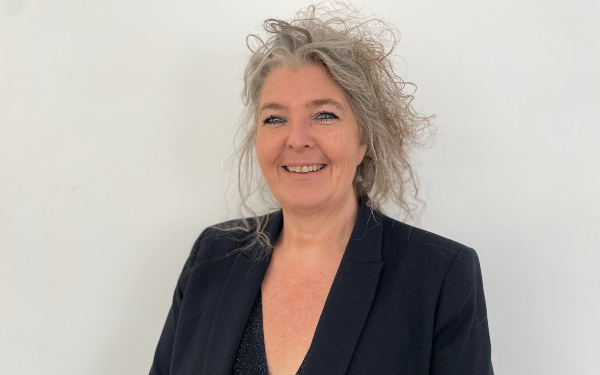
Cafcass has issued a new domestic abuse policy to tackle practice deficits that remain four years after it was severely criticised in a government-commissioned report.
It said it had made progress since a panel investigating the family courts’ response to domestic abuse and other harms found practitioners’ court reports gave limited weight to children’s views, particularly when they said they did not want to spend time with an abusive parent.
Following the 2020 report, Cafcass initiated a national improvement programme to improve its response to domestic abuse, particularly in private law cases involving separating parents, where practitioners make recommendations to the court about what is in the child’s best interests.
The programme involved mandatory training for all family court advisers (FCAs) and children’s guardians, personal learning plans on domestic abuse for all practitioners and regular practice audits on the issue. It has also received support from domestic abuse charity SafeLives, which has seconded two staff to Cafcass.
Practice improving but ‘errors in judgment persist’
The second annual review of the improvement plan, published last year, said that, in most cases, FCAs understood “the harm, risk of harm and impact on children of domestic abuse and their analysis of this informs their recommendations to the court”.
However, Cafcass said the new policy was needed because “errors in judgment persist, with terrible consequences for child and adult victims”, while chief executive Jacky Tiotto said it was “intent on eliminating practice that isn’t good enough”.
The policy requires practitioners and managers “to listen to children and adults who have experienced domestic abuse and accurately record and share with the court what they have been told”.
No more references to domestic abuse ‘claims’
This includes not dismissing or minimising domestic abuse as historical or as a one-off incident. To do so “not only reveals a lack of understanding of the ongoing and long-term trauma of domestic abuse for victims but also perpetuates it”, the policy says.
Practitioners must also not “not reinterpret or reword the experience of domestic abuse victims”, but use their words about what happened to them and the impact it has had, in all reports to the court. They must also not use the words “claims” or “alleges” when referring to reports of domestic abuse.
“To do so minimises and diminishes the experience of the adult and child living with the impact and trauma caused by abuse,” the policy says, adding that it is for the court to determine the facts of any case.
Social workers must also not describe someone as anxious or suffering from mental ill-health, unless they have been clinically diagnosed, without considering that this may be a trauma response to abuse.
Recommendations around contact
The policy also includes several measures related to Cafcass social workers’ recommendations to the court on children’s contact with parents accused of abuse.
It stipulates that practitioners’ “starting point” should be to recommend that children do not spend time with a parent who is being investigated by the police for a sexual offence, has been convicted of such an offence or has served a prison sentence for violent or sexual offences.
Where practitioners depart from this starting point, this must be “supported by a compelling rationale, discussed with a manager, and recorded contemporaneously in the child’s case record”.
More broadly, FCAs or guardians must provide “a clear, unequivocal, and compelling rationale in their reports” for discounting domestic abuse as a risk to the child when recommending contact after abuse has been reported by either parent or the child.
Assessing perpetrators
When assessing a parent who has been domestically abusive, practitioners must not recommend contact with the child and the other parent without clear evidence that the perpetrator:
- Recognises the harm their behaviour has caused their victims.
- Has taken responsibility for the harm they have caused.
- Has taken action to sustain change in their attitude and to stop their harmful behaviour, which has been demonstrated over time.
These changes must result in an assessment that the risk of them perpetrating that behaviour has been removed to the point of enabling a recommendation that contact is in the child’s best interests.
As with sexual offences, any departure from this starting point must be supported by a compelling rationale, discussed with a manager, and recorded contemporaneously.
‘Parental alienation’
The guidance also addresses cases where a child does not want to see a parent following separation and the non-resident alleges this is because of “parental alienation”. This involves accusing the other parent of manipulating the child into holding negatives towards them.
Cafcass has separate guidance on “alienating behaviours“, which stresses that a practitioner’s “first step” in such cases is to consider whether domestic abuse or other harmful parenting factors are present.
This is reflected in the domestic abuse policy, which says that practitioners must “first consider whether the cause of this refusal is because the child is a victim of domestic abuse and harmful parenting”.
Objective of eliminating sub-standard practice
Launching the policy, Tiotto said: “When the advice put to the court, doesn’t get the balance right between the right of a child to have both parents in their lives and the risk of harm from that contact, when it doesn’t protect a child, when it isn’t in their best interests and when it puts their protective adult and carers in harm’s way, the consequences can be devastating.
“This is why we continue to prioritise further improvement in working with child and adult victims of domestic abuse. It is why we have an internal improvement programme, why we are listening so hard to child and adult victims and public concerns. We are intent on eliminating practice that isn’t good enough.”
She added: “I am sorry that some four years on from the harm panel report, there are still children and adults in family court proceedings who do not receive the protection they deserve and require.”
Domestic Abuse Commissioner welcomes policy
Domestic Abuse Commissioner for England and Wales Nicole Jacobs welcomed the guidance, saying that it adopted a “child-centric approach”, as she had urged in a 2023 report on the family courts.
“I am pleased that the language in this policy has shifted to become more natural and appropriate in the context of children disclosing abuse,” she added.
“Victims often tell me that the language professionals use to describe domestic abuse is hugely important to their wellbeing.”
Elevating survivor voices in family court practice
For SafeLives, interim director of quality and innovation Emma Robinson said it had been working with Cafcass, including through the secondment of two staff, on “elevating survivor voices into family court practices”.
“Many survivors have shared that their experiences with family courts, including Cafcass, have been deeply traumatising, and impacted their ability to move forward,” she added.
“Our role within Cafcass has been to support meaningful reflection and practical improvements, particularly around language and the introduction of the new domestic abuse practice policy, which we believe will lead to better outcomes for both children and adult victims of abuse.”
She added that SafeLives welcomed Cafcass’s “openness to collaboration and the positive response to the changes we are helping to implement”.






 Bournemouth, Christchurch and Poole
Bournemouth, Christchurch and Poole  Hampshire County Council
Hampshire County Council  Lincolnshire County Council
Lincolnshire County Council  Norfolk County Council
Norfolk County Council  Northamptonshire Children’s Trust
Northamptonshire Children’s Trust  South Gloucestershire Council
South Gloucestershire Council  Wiltshire Council
Wiltshire Council  Wokingham Borough Council
Wokingham Borough Council  Children and young people with SEND are ‘valued and prioritised’ in Wiltshire, find inspectors
Children and young people with SEND are ‘valued and prioritised’ in Wiltshire, find inspectors  How specialist refugee teams benefit young people and social workers
How specialist refugee teams benefit young people and social workers  Podcast: returning to social work after becoming a first-time parent
Podcast: returning to social work after becoming a first-time parent  Podcast: would you work for an inadequate-rated service?
Podcast: would you work for an inadequate-rated service?  Family help: one local authority’s experience of the model
Family help: one local authority’s experience of the model  Workforce Insights – showcasing a selection of the sector’s top recruiters
Workforce Insights – showcasing a selection of the sector’s top recruiters 

 Facebook
Facebook X
X LinkedIn
LinkedIn Instagram
Instagram
Cafcass do not and have not listened or heared what this mother who is still getting verbally abused and threatened near to 3 years later in this case has had to say. They favoured the father who has a criminal record and was verbally abusive and manipulative and down played that. So are cafcass going to look into back cases were there shortfalls were and still are very much over looked and correct what should of been taken into consideration from the get go. Look foward to hearing a reply thank you.
Can you tell me how to comment on here, my reply would be a replica of yours and the other two comments on here!
Re parental alienation ,this practice is perpetuated by the courts in so much as so much time elapses before a case is heard ,sorry to sat that the courts are one of the last bastions of gender dis rumination.Cafcass officers are maybe overworked but certainly not professionally curious enough about what is really going on .There is generally a lack of ability to forensically examine evidence .Until these issues are resolved the cfamily courts are not fit for purpose
Unfortunately this is too late for me. My domestic abuse support worker and therapist were shocked by the report that Cafcass put together, completely diminishing the abuse I had been to and asking insensitive and probing questions around SA. I was being treated for PTSD but they treated the case as ‘he said/she said’ instead of asking social workers and family support workers for their reports. I have to live with the trauma of that now too.
https://www.researchgate.net/publication/378822031_CAFCASS_EXPERIENCES_SURVEY_LIVED_EXPERIENCE_OF_INVOLVEMENT_WITH_CAFCASS_IN_ENGLAND
The family court & cafcass just look at it as parental conflict when the truth is there is a misuse of power/abuse which is why it’s ended up in court. My abuser took me to court numerous times & was allowed to manipulate the legal aid money to his narrative. I am still fighting for my sons rights as his father still uses him as a weapon to get at me.
So no change in outcome….apart from don’t use the words claims or alleged. A long article just to pretend changes will have some impact. Please don’t be fooled by the article, just prepare to continue to experience more of the same, if not worse. As they try to find alternative phrases for claims or alleged. Whilst domestic violence and parental alienation are given equal footing nothing will change. Even thought parental alienation has been discredited in many countries.
We are nearly 10 years on from the Coercive and Controlling Behaviour addition to the Serious Crimes Act and the more recent addition of other people carrying the CCB (in families etc.) but…
Why is it taking so long for Local Authorities (Family Court, Family Court Advisors and Local Authority social workers) to catch up or even recognise Domestic Abuse / Violence as an actual crime?
But… again, even the police don’t recognise it also!
How many families have been failed with the DV being rebranded as “Complex Family Dynamics”, “Parental Conflict”, “Arguments” or a new one is “Situational Abuse” in child protection reports. Surely the statutes of the Children’s Act / Section 47 along with the Serious Crimes Act should be enough to protect victims of DV and CCB? Also, children should be more recognised as victims of DV rather than just being at “risk of harm” or “emotional harm”!
Shouldn’t it be an automatic situation, that if DV is present in a family, that during any Section 47 enquiries, the police should be fully involved? At the moment discretion is allowed during any “Strategy Meetings” with the police, so a social worker can exclude police involvement with no recourse for that decision!
Also, FCAs who work for Cafcass could actually be in a very unique position and be able to spot dubious social work involvement with a family! But… again, there is an “agreement” between FCAs and Local Authority social workers that FCAs won’t intervene on a case or take over a case if there is ongoing social care involvement.
I think that being just short of 9 years (December 2015) since the Coercive and Controlling Behaviour law was brought in, and Cafcass are only starting to look at this situation speaks volumes on how seriously this matter is actually (not) taken. In effect, it’s a “non active law” that is never recognised or properly put in place. Celebrities are sometimes prosecuted or charged with it for the “publicity” side of it, but how many convictions actually happen for the general public?
Hardly any, but… how many reports of DV are made to the police, to social care to family courts – 100s?, 1,000’s?
Cafcass rush through too many cases. They need to take more time rather than make judgements based on one phone call or one meeting. If they really want to change things the staff need less cases so they can do a better job but that will be too expensive and will never happen. They can’t recruit either cos of the low wages compared with other social work jobs so now they don’t have the best staff rather whoever will take the job and a cut in wages!
CAFCASS do not have understand what Neurological conditions and or disorders or in a adult or a children, as I have dealt with over two decades. I changed the Domestic Abuse Legislation Law Act 19 to Act 2023 in April 2021,in the parilmentary, House of Lords and Women’s Aid Committee. I know there is a more to be done for social workers to be trained and understand the complexities, the implications of and the implementations of how serious DA, DV and CCB is, the social worker has the duty to support victims and and survivors to be housed and help the to rebuild their lives.
Legal cafcass, and socials work must be trained to support the child mental health, wellbeingand physical health into consideration support and respect the victim of domestic violence and domestic abuse and CCB, these 3 series crimes are individually separate.
Cafcass are a joke. Their website makes wonderful statements but the people on the found haven’t a clue and just shrug when you inform them of what their bosses are writing.
Social workers do not have it easy with overloaded system with cases in which people are in very high risk situation. No resources, misleading system ( hiding important info) will make the matter worst for victims of DA. Coehrice control is criminalised but immoral abusive behaviour became a norm in our immoral narcissistic society so cases like these are swept under the carpet, despite of the law being against the coehrice control. In long term it affects all in household and the outcome can be ptsd, depression, lost of resources, parental alliation and much more. What the system does is to make decisions which harm the victims and keep the immoral controlling behaviour of abuser unpunished and sometimes rewarded. Why? 1. The system save resources 2. Punishes victims. This systemic discrimination sends signal to others that if this happen to you, do not complain otherwise you will lose. 3 if the abuser lose, he usually revenge so there is a risk of victim to be harmed more or killed. So let’s make our case easy, and support the perpetrator, especially the one with finances, health and job. The system is failing and its not made for its purpose. Why? Becouse we live in society in which immorality, cohersive behaviour and manipulation with lies became a norm. Nobody ask children and next generation, is that the society you want to live in? If you do not improve morals, you will get more immoral controlling individuals harmming others, including killing. There must be punishment for this type of behaviour to be stopped and not become a norm, law in place or not.
I am in process now and being forced to face my abuser on video calls in attempt to get my son to have contact that has clearly expressed several times he isn’t ready he’s 9 so not at the age to make decision yet. If I don’t do these calls I am threatened with contempt of court which could result in fines and even imprisonment! They treat my case as a separation but we weren’t together from when I was 20 weeks pregnant but are making me effectively lie to my son to fit this narrative. My ex is using the calls to imply I’m lying etc but I have the police reports, emails from him harassing me and being uncooperative, the CAFCASS officer spoke with sons school didn’t put into the report how school had been contacted using operation encompass via police because of abuse to my son none of these things have been recorded but mistakenly in report states how I am.projecting my anxieties onto my son this wasn’t the case at all my son had anxiety going into school because a child had been bullying him!
The ICFA officer clearly has male biased and dosent listen to me belittles me on the calls and makes me do things I don’t want to. He bribes my child by saying he could see his cousins if they’re with his father! He’s petrified of him. I get no time to recover from the calls as he then pushes for calls the bext night or about 3 days later! Every call results in me having a massive panick attack and unable to function for days and days after! Thank god for women’s aid who are supporting me through this process they can not believe I’m being made to do this, its hard when you complete the programmes and start to rebuild to go back to the trauma because CAFCASS inability to support and record victims of abuse.
Any advice legislation and policies would be greatly appreciated.
Let’s hope this gives social workers time to connect and understand the impact on the parent facing domestic abuse and what it means for the parent.
Parents can experince dfferent types of abuse from physical abuse,emotional,financial,
storking,cohesive control,parental alienation all of which are complex behaviours, this includes family dynamics,
cultural understanding,ability to recognise disguised compliance, abilty to understand resistance to change in order to deliver safe analytical reflection and decision making in respect of the child and parent who is subjected to domestic abuse.
All of which inform our assessments and decision making.Does it not?
If a parent does not understand the impact on the child or is unwilling to change should we not explore why this is although some parents may feel resistant to change is thier belief/culture / right,social workers should have the space to explore this in detail before any decisions are made in respect of any child and not viewed has the problem if timescales are not met. (Should the question not be what needs to happen next)?
In my experince some parents do not, nor wish to fully understand the impact on the child, nor the long term implications on thier child.(this needs to be explored in detail ).Listening carefully to the child and parent is a must and may not take place at the start of an assessment.
Assessments and recommendations are complex regardless of the type of assessment,whether that be pre- birth assessments,parenting assessments,risk assessments,court reports.(to name a few)
Assessments are a fundamental part of the work social workers do.Therefore should social workers not expect support,meaning full supervision and informative training on a regular basis to inform pratice? I do not understand why social workers are not given the time/support,in my opinion a few visits does not justify an assessment of a child’s/family’s lived situation,you have not even scratched the surface in some case’s.
Using supervision to blame social workers for a service which does not offer adequate training,support and just basis supervision does not support the service nor the social worker,it just masks the issues.(Does it not?)
These are my experiences/observations.